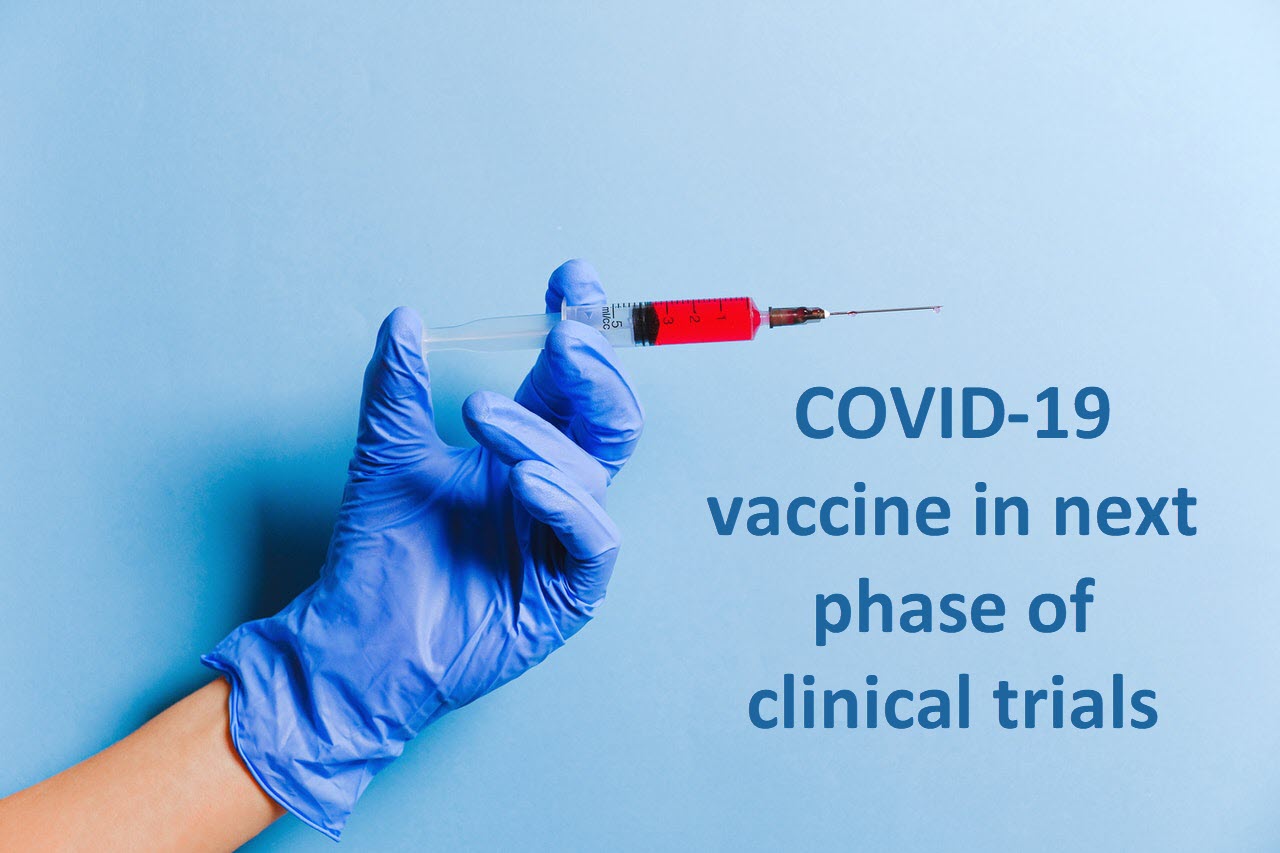
University of Oxford researchers have begun recruiting for the next phase in human trials of a COVID-19 vaccine in human volunteers. Oxford COVID-19 vaccine, ChAdOx1 nCoV-19, is made from a virus (ChAdOx1), which is a weakened version of a common cold virus (adenovirus) that causes infections in chimpanzees, that has been genetically changed so that it is impossible for it to replicate in humans.
The phase I trial in healthy adult volunteers began in April. More than 1000 immunisations have been completed and its follow-up is currently ongoing. The next study will enrol up to 10,260 adults and children and will involve a number of partner institutions across the country.
The phase II part of the study involves expanding the age range of people the vaccine is assessed in, to include a small number of older adults and children. For these groups, researchers will be assessing the immune response to the vaccine in people of different ages, to find out if there is variation in how well the immune system responds in older people or children.
The phase III part of the study involves assessing how the vaccine works in a large number of people over the age of 18. This group will assess how well the vaccine works to prevent people from becoming infected and unwell with COVID-19.
Adult participants in both the Phase II and Phase III groups will be randomised to receive one or two doses of either the ChAdOx1 nCoV-19 vaccine or a licensed vaccine (MenACWY) that will be used as a ‘control’ for comparison.
The MenACWY vaccine is a licensed vaccine against group A, C, W and Y meningococcus which has been given routinely to teenagers in the UK since 2015 and protects against one of the most common causes of meningitis and sepsis. This vaccine is also given as a travel vaccine for high risk countries.
Genetic material has been added to the ChAdOx1 construct, that is used to make proteins from the COVID-19 virus (SARS-CoV-2) called Spike glycoprotein (S). This protein is usually found on the surface of SARS-CoV-2 and plays an essential role in the infection pathway of the SARS-CoV-2 virus. The SARS-CoV-2 coronavirus uses its spike protein to bind to ACE2 receptors on human cells to gain entry to the cells and cause an infection. By vaccinating with ChAdOx1 nCoV-19, scientists are hoping to make the body recognise and develop an immune response to the Spike protein that will help stop the SARS-CoV-2 virus from entering human cells and therefore prevent infection.
Rocky Mountain Laboratories (NIAID/NIH) have conducted a rapid yet thorough investigation and demonstrated good safety and efficacy of a single dose of ChAdOx1 nCoV-19 in the rhesus macaque model that they had previously established. Scientists from Oxford University were able to review the data before vaccinations in the clinical trial were initiated. There are also animal studies underway in Australia and the UK, and the results will be published once those studies will complete.
Professor Andrew Pollard, head of the Oxford Vaccine Group, said, "The clinical studies are progressing very well and we are now initiating studies to evaluate how well the vaccine induces immune responses in older adults, and to test whether it can provide protection in the wider population. We are very grateful to the huge support of the trial volunteers in helping test whether this new vaccine could protect humans against the pandemic coronavirus.
Sarah Gilbert, professor of vaccinology at the Jenner Institute, said: 'The COVID-19 vaccine trial team have been working hard on assessing the safety and immunogenicity of ChAdOx1 nCoV-19, and preparing to assess vaccine efficacy. We have had a lot of interest already from people over the age of 55 years who were not eligible to take part in the phase I study, and we will now be able to include older age groups to continue the vaccine assessment. We will also be including more study sites, in different parts of the country.'
Mene Pangalos, Executive Vice President, BioPharmaceuticals R&D, AstraZeneca said: 'We are so proud to be collaborating with the University of Oxford to accelerate the development and globalisation of this potential new vaccine against COVID-19 infection. The speed at which this new vaccine has advanced into late-stage clinical trials is testament to Oxford’s ground-breaking scientific research. We will do everything in our power to engage with governments, multilateral organisations and partners around the world to increase production and distribution and ensure rapid, fair and equitable distribution of a globally accessible vaccine.'
This study aims to assess how well people across a broad range of ages could be protected from COVID-19 with this new vaccine called ChAdOx1 nCoV-19. It will also provide valuable information on safety aspects of the vaccine and its ability to generate good immune responses against the virus.
The purpose of Phase II/III Clinical Trial is to test a new vaccine against COVID-19 in healthy volunteers. This study aims to assess how well people across a broad range of ages could be protected from COVID-19 with this new vaccine called ChAdOx1 nCoV-19. It will also provide valuable information on safety aspects of the vaccine and its ability to generate good immune responses against the virus.













